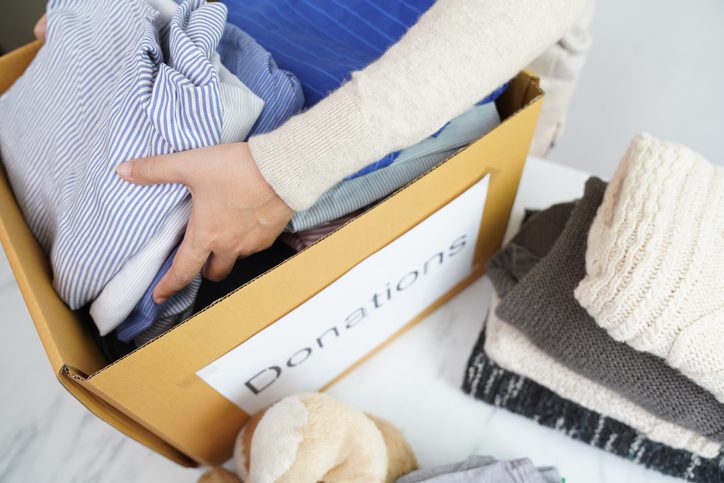
From left, Chantale Bégin, Lauren Shea, Noelle Helder and Isabelle Côté completed the World's Toughest Row across the Atlantic Ocean.(Image via Instagram @saltysciencerowing)
The women trained for three years, conditioning their bodies to row for 12 hours a day and learning to live on a boat that fit three rowers with a small cabin for team members to rest, and a bucket for a bathroom.
Salty Science, a women’s rowing team from Tampa, won first place in the women’s division of the World’s Toughest Row, an annual 3,000-mile endurance race across the Atlantic Ocean. They are the first North American crew to win the women’s class.
Led by Chantale Bégin, a marine biology professor at the University of South Florida, the rowing team departed from Spain’s Canary Islands on Dec. 13, 2023 and landed 38 days, 18 hours, and 56 minutes later at the English Harbour in Antigua on Jan. 20. The team placed seventh out of 38 crews from all over the world.
The Salty Science rowing team was created in 2020 by Lauren Shea, when she was a master’s student at the University of British Columbia. Shea reached out to her colleagues from USF with the idea to create a team of four women scientists all connected by their passion for marine conservation and education.
“We jumped into it pretty quickly,” Shea told Tampa Bay Times. “But when we signed up, we didn’t really have a great idea of what we were jumping into. None of us knew how to row at the time.”
The team includes Bégin, (44, Palm Harbor), Shea, (27, Vancouver, British Columbia), Noelle Helder (28, Fairbanks, Alaska) and Isabelle Côté, (60, Vancouver), Bégin’s doctoral adviser at Simon Fraser University in Canada.
The women trained for three years, conditioning their bodies to row for 12 hours a day and learning to live on a boat that fit three rowers with a small cabin for team members to rest, and a bucket for a bathroom.
Despite all the preparation, the team had its fair share of challenges at sea. Their water purifying machine stopped working and flooded the boat and cabin. Luckily they brought a replacement. Also, their autopilot kept failing so they had to track their position in the Atlantic using a chart plotter.
And because of rough sea conditions, their boat nearly tipped, and a large wave broke an oar in two.
The women survived on 4,000 calories a day of dehydrated meals, fruit snacks, chips, and crackers. But after rowing for countless hours at sea, each team member lost between 14 and 18 pounds.
While rowing, the team listened to podcasts and Taylor Swift to stay awake.
“It’s a big mindset thing. You go into the race as a team and realize we’re going to be out there for a long time; therefore, we need to tackle each day as best as we can,” Bégin said.
The goal was never to win, Bégin said, but to get across the finish line safely, maintain their relationships with each other and grow as a team.
Salty Science raised $252,000 out of their $500,000 goal to support charities focused on marine conservation and training the next generation of scientists. The group is still accepting donations for their cause.
RELATED: Juanma López Jr. follows father’s footsteps for Paris 2024 Olympics
Support Our Cause
Thank you for taking the time to read our work. Before you go, we hope you'll consider supporting our values-driven journalism, which has always strived to make clear what's really at stake for Floridians and our future.
Since day one, our goal here at Floricua has always been to empower people across the state with fact-based news and information. We believe that when people are armed with knowledge about what's happening in their local, state, and federal governments—including who is working on their behalf and who is actively trying to block efforts aimed at improving the daily lives of Florida families—they will be inspired to become civically engaged.


What to know about the 8 bowl games happening in Florida this winter
Here’s what you need to know about the eight bowl games happening in Florida this winter, from memorable moments to 2024 ticket information. If you...

Adriana Díaz set to shine: Puerto Rican star competes in 2024 WTT finals in Japan
Díaz is one of only three non-Asian players in the women’s singles competition at the WTT Finals. Puerto Rican table tennis star Adriana Díaz...

5 places in Florida to donate clothes, shoes, and more
Decluttering your home can provide such a satisfying feeling of accomplishment. After sorting through all of your belongings and determining what...

8 Orlando hotels that pack as much fun as the theme parks
With waterslides, family arcades, playgrounds for the kids, and spas for mom and dad, these Orlando hotels will make your vacation unforgettable!...



